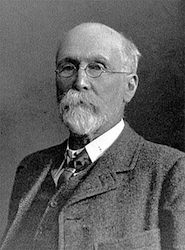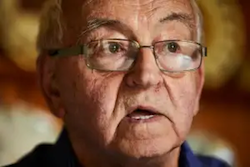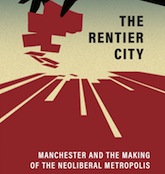Sick of waiting for free markets and trickle-down economics to make us all better off, ERNIE JACQUES looks for hope in the legacy of a northern factory owner and philanthropist whose social reforms inspired the welfare state.
In Mary Stratford’s ILP article, ‘Labour in Government: We Need Hope Not Hardline Policies’, she highlighted the Labour government’s concerning trajectory, particularly on issues such as the winter fuel cuts, WASPI women’s pensions, and what appears to be a Conservative-style deregulation and privatisation agenda.
 Mary was also unhappy with Keir Starmer’s authoritarian approach to internal party democracy, a political tactic that suppresses dissent and goes against the core principles of Labour as an inclusive broad church where diverse voices should all be heard and respected.
Mary was also unhappy with Keir Starmer’s authoritarian approach to internal party democracy, a political tactic that suppresses dissent and goes against the core principles of Labour as an inclusive broad church where diverse voices should all be heard and respected.
Chancellor Rachel Reeves’s emphasis on private sector investment for growth is also concerning, particularly given the track record of privatisation and deregulation in public services since the Thatcher era, affecting sectors such as rail, bus transport, gas, water, electricity, telecommunications, steel, airlines, local government, universities, schools and the NHS.
The impact of these moves has largely been negative. For instance, when the water industry was privatised in 1989 it was hailed as a reform that would boost investment, improve efficiency and water quality, and benefit consumers. However, the regional water monopolies have consistently underinvested in essential infrastructure while directors have received substantial dividends as the companies have accumulated significant debt. Meanwhile, the costs to consumers and the environment have mounted as a consequence of corporate greed and mismanagement.
This pattern, unchecked over decades, has worsened during the cost-of-living crisis when we have seen double-digit water rate increases, including Southern Water’s industry high 47% hike. Considering this abysmal history, the shift away from Labour’s commitment to renationalise the water industry is particularly worrying.
All this is rather too reminiscent of Tony Blair’s New Labour government, when we were persuaded to wait for free markets and trickle-down economics to make us all better off. Peter Mandelson (now a Starmer appointee as ambassador to the United States of America) urged critics to be patient for economic growth when wealth creation would benefit everyone.
It never did. Indeed, wealth trickled up for decades to accumulate in the pockets of the rich while working class citizens became poorer and their lives more precarious. The world is said to be 700% richer than it was in 1970 although the average person is only 8% better off. Meanwhile, the world’s richest 0.01% are 4000% wealthier.
We have been here many times over the past 50 years, and especially since Thatcher came to power in 1979, when it’s always been good news for the rich and the super-rich but jam tomorrow for the working class, the poor, the unemployed and the vulnerable. Despite this, Reeves and her cabinet colleagues appear to believe that the UK’s economic recovery and future prosperity rests on more private sector investment driven by deregulation.
Good life
We get a very different perspective from the much-respected Joseph Rowntree Foundation (JRF) whose vision of the good life is based on a moral crusade. It exists “to consider ways of ending poverty in the UK, to ensure dignity and respect for all, and to address exclusion and powerless”.
 In this regard, the JRF promotes the benefits of minimum income standards and a real living wage as a precursor to ending poverty and inequality, and creating the good society.
In this regard, the JRF promotes the benefits of minimum income standards and a real living wage as a precursor to ending poverty and inequality, and creating the good society.
After the 2024 Autumn statement, JRF commented that the Chancellor’s welfare and spending cuts would make problems worse, not better, leading to a further fall in living standards for the average family, leaving them “£1,400 worse off by 2030 than they are today – marking a 3% fall in their disposable income after housing costs”. The poorest families, it said, would be £900 a year worse off, amounting to a 6% fall in their disposable income.
Joseph Rowntree (pictured above), it should be noted, was neither a socialist nor a communist. But he was a philanthropist, a Quaker, a Liberal, and a remarkably successful businessman. He was esteemed by his workers at the Rowntree chocolate factory and to this day is held in high regard by the residents of York due to his support for those who worked for him, and the many community projects he created and funded throughout the city.
He focused on addressing the fundamental causes of social, economic and political ills, as he saw them, and on making life better for everyone. In fact, his commitment to tackling the underlying causes of poverty and unhappiness was unparalleled.
Nationally, Rowntree was a significant influence on the thinking and planning that led to the 1942 Beverage Report, which aimed to deal with the major societal challenges it termed “the five giants”: want, disease, ignorance, squalor and idleness. It was largely this report that led to the creation of the welfare state and NHS.
The end of the second world war left Britain with a massive national debt, peaking in 1946/47 at around 252% of GDP. From there it would take Britain another 60 years to repay the war debt owed to the USA. But despite having a fiscal black hole like no other, Clement Attlee’s post-war Labour government embarked on a massive programme of slum clearance, built new towns and thousands of council houses, and established major infrastructure projects.
Although the world was very different then, the decisions and achievements of that Labour government, in building a society fit for heroes and tackling poverty and injustice, was truly impressive. While the world of work was, for most, never a bed of roses, this was also a time when there were no zero-hour contracts or foodbanks, and when one wage could feed and house a family, and allowed working people to save and aspire to own their own home.
Today, that is an impossible dream for thousands of young people here in York, and many more around the country for whom mortgages and private sector rents are unaffordable. What is truly immoral and scandalous is that we’ve arrived at a situation where people born and bred in places such as York cannot afford a home in their own towns and cities.
Mary’s hope is that Labour will save the NHS and public services, and make those with the broadest shoulders cover the cost imposed by the fiscal crisis and the mess left by the Tory government. Let’s hope this is more than wishful thinking.
—-
Ernie Jacques is a retired mechanical engineer, trade unionist and local government officer who lives in a York. He describes himself as “a long-term supporter of the ILP and a dedicated left-wing socialist”.
See also: ‘Labour in Government: We Need Hope Not Hardline Policies’ by Mary Stratford.
And: ‘Labour in Government: Why We Need a Wealth Tax’ by Chris Wilson.


